Wasteful
Picking up the pieces of Spurs' worst performance of the season and understanding what we need to fix ahead of the January window.
Spurs’ performance at Bournemouth was perhaps our worst of the season, but was also reflective of a particular problem in this Spurs side when things aren’t going well.
Spurs consistently come out at the opening whistle filled with intensity and purpose. Sometimes these early spells of control take the form of lots of possession, as they did yesterday against Bournemouth. Sometimes they take the form of lots of possession in threatening territory, usually from forcing high turnovers and springing on our opponents. Often it’s both. So far, so good.
But the problem is that when Spurs fail to convert early energy into goals—especially when it means missing big chances or making a poor decision with a final ball in a threatening area or with numerical advantage—it’s clear that frustration sets in. Frustration sometimes leads to doubt, which can be a both a cause and an effect of conceding a soft goal against the run of play.
I’ve described such concessions as sucker-punch goals and suggested that this young Spurs squad really struggles to regain control after conceding shortly after missing opportunities of their own. It’s psychologically challenging, I imagine, to work through such swings from almost 1-0 up to suddenly 0-1 down, all while maximizing intensity. By all accounts that’s what happened at Bournemouth, where Dragusin’s failure to track his man in the simplest way led to a free header on a corner kick, then an ostensible collapse in the squad’s self-belief.
Momentum vs. Momentum
Researchers have debated whether ‘momentum’—roughly, the tendency of something going well in sport to stay going well because it’s going well (or the opposite, to keep going badly because it’s going badly)—is a real thing. But this post isn’t about psychological ‘momentum,’ but statistical momentum in football, i.e. field tilt.
Field tilt (captured in the FotMob Momentum charts I’m using in this post) is a measure of territorial control in a football match, or how deep into one’s own or one’s opponent’s territory a team is possessing the ball. Naturally, you want to possess the ball deep into your opponent’s territory as often as possible, as you’re more likely to create threat from those positions than to concede threat on your own goal.
When I look at what’s going on with momentum in Spurs’ worst performances of the season, I’m seeing a pattern that’s compatible with the psychological explanation I offered above (conceding sucker-punch goals after early spells of territorial dominance has a flattening effect on our squad). But I want to understand this better in terms of what we can actually observe (i.e. we can’t observe players’ mind-states).
Let’s take a closer look at Spurs’ worst performances of the season so far.
Fail to Score, Fail to Win
First, Spurs have failed to score against just 3 opponents in all 21 matches across all competitions this season: Bournemouth, Palace, and Arsenal. And in all three of those matches it’s fair to say Spurs deserved between 0 and 1 goals. Spurs put up the lowest xG of the season against Arsenal (.71), the second-lowest against Palace (.74), and the 4th-lowest against Bournemouth (.87). All of those were 1-0 losses:
Focusing just on the Premier League now, beyond the 3 matches in which Spurs failed to score, Spurs only managed 1 goal in a further 4 matches: against Fulham (draw), Ipswich (loss), Leicester City (D), and Newcastle (loss). All in all, as you should expect, 6 of Spurs’ 7 lowest-scoring games were also the lowest-xG performances of the season. Recalling what I’ve watched in those 7 games, only against Ipswich (1.55 xG), Newcastle, and Leicester City do I think Spurs really ought to have scored more than 1 goal.
By the way, you’ll notice that I included in the above chart markstats’ average defensive line height (m) figure for each of Spurs’ opponents this season. I included this because, as you can see—and as you’ve probably observed while watching the games—it’s not clear that Spurs create more xG against a more open, attacking side, and lower xG against a low-block side. There’s been a lot of chatter about how Ange can’t set us up against more defensive-minded opponents, but I don’t think there’s much to that.
I think something else is going on when we have these low-xG performances, and I think it has to do with momentum (field tilt).
Capturing Wastefulness across 7 Games
Let’s start with the 3 games in which Spurs failed to score. Here’s the momentum chart against Arsenal:
As you can see, Spurs were territorially dominant in this match overall, especially in the first 15 minutes. We didn’t concede a sucker-punch goal after that early stretch of dominance, but as you can see, Arsenal gave us a run for it around the 18th minute. Let’s compare with Bournemouth:
Once again you can see an opening 15 minutes of possession and territorial dominance. But this time there’s also a sucker-punch goal in the 17th minute, around the same time Arsenal also managed to break up our territorial advantage earlier in the season. Spurs clearly recovered a bit from there at Bournemouth, but by the end were too stretched, tired, or discomposed to press on, leading to that awful spell at the end of the match in which we really should’ve conceded a 2nd, 3rd, or 4th goal.
If you zoom out on momentum for each of these performances, one thing they have in common sustained periods of possessional and territorial dominance—especially but not exclusively early in the match—amounting to nothing.
This is one way of capturing the colloquial term wastefulness in attack.
It’s important to underscore here that being wasteful not only means failing to score goals from promising positions or underperforming xG, but also failing to generate expected goals from promising positions. The former is the obvious form of wastefulness, and it’s not registered in Spurs’ overall xG performance this season, which is excellent. But the particular kind of wastefulness Spurs suffer from—poor decision making, lack of composure in the final 3rd, a poor final ball—is reflected, I think, in the mismatch between Spurs’ territorial dominance and low xG in poor performances.
Granted, it’s not quite that tidy. I’ve called the Palace game an outlier and a head-scratcher and I still think that’s true. Maybe it’s the small pitch, the conditions of that game, an off day, fatigue, etc., because I wouldn’t say Spurs were territorially dominant in this one:
But again you can see that Spurs had their customary first 15 minutes of territorial dominance before conceding a sucker-punch goal, not too different from how things played out early against Arsenal and Bournemouth.
If we look at two more low-xG, low-scoring performances—the draw against Leicester City and the loss against Newcastle—we see similar patterns.
Against Leicester City, Spurs dominate territory from the outset and throughout the match, but are only able to register one goal and an xG of 1.18. We score first this time, but then in the second half, after another spell of territorial dominance, we concede a suck-punch goal and then lapse into the game’s only period of sustained territorial threat from Leicester:
If we turn to the loss against Newcastle, in which we scored just one goal and put up an xG of 1.26, we see Spurs not getting off to their customary intense start, conceding first, but then repeating the typical first-half pattern in the second half. That is, waves of territorial dominance—finding the equalizer—before conceding a sucker-punch goal against the run of play:
Zooming out, you can see that Spurs control territory on the whole in this match, with punctuated moments of Newcastle territorial threat. And once again, the key observation is that Spurs largely fail to convert spells of territorial dominance into more than 0 or 1 goal and into a higher xG befitting the territory they’re occupying.
That leaves us with the last two of Spurs’ 7 low-scoring performances: against Ipswich and Fulham.
Notably, against Ipswich, Spurs put up the highest xG (1.55) of the 7 lowest-scoring performances. Commensurate with that higher xG is the extent of Spurs’ territorial dominance in this match:
Once again, we see in the first half very few moments of threat from Ipswich, but two sucker-punch goals amid spells of Spurs’ possession in the Ipswich half. In the second half, Spurs manage to pull one back, again playing nearly the whole half in Ipswich territory, but again failing to covert a half’s worth of territorial dominance into a second or third goal.
I’ve put Fulham last here because, short of a bright first 10 minutes for Spurs, Fulham were the better side. There’s not much of the above patterns in this one, just a relatively even match in which Fulham created more and Spurs deserved nothing more—and maybe less—than they got.
Conclusions
The timing and flow of all 7 of Spurs’ low-scoring, low-xG performances in the Premier League this season aren’t identical across performances, but I think they do reveal some common themes that more granularly represent wastefulness:
A failure to turn early intensity into goals and xG.
A failure to turn long spells (zoomed out) of territorial dominance in matches into goals and xG.
A tendency to concede sucker-punch goals against the run of territorial advantage.
In short, the wastefulness that defines Spurs’ weaker performances this season isn’t reflected in aggregated xG figures—which again have been at or near the very top of the league—because Spurs are failing to convert territorial advantage into high-yield chances and goals.
Furthermore, I don’t think this is about breaking down low-block opponents versus getting joy out of more open, attacking opponents. Rather, I think it’s a decision-making and composure problem that can strike against any kind of opponent. The upside is that Postecoglou has set up this Spurs squad with the tactics and tools to control—even to dominate—games. The downside is that control and domination aren’t worth much if you’re not converting all the energy they require into goals.
No doubt injuries and fatigue are big parts of what we’re seeing now in our performances and results, especially because more injuries and more rotation means players who are less experienced, less composed, or less technically adept are now the ones on the ball in those spells of territorial advantage. But something to watch out for in the coming weeks of a tough stretch of games with a depleted squad is how commentators will overemphasize Spurs’ defensive challenges and out-of-possession tactics, but underemphasize the problem of wastefulness.
To put a fine (and final) point on it: Spurs still haven’t lost a single match this season, across all competitions, by more than one goal. Wastefulness is a low-margins issue, meaning it only takes a marginal conversion of territorial threat into goals to pick up a lot more points across the season. Fixing the wastefulness issue is the difference between sitting 10th in a compressed table, 6 points off 4th, and settling into the chasing pack of Chelsea, Arsenal, and City.




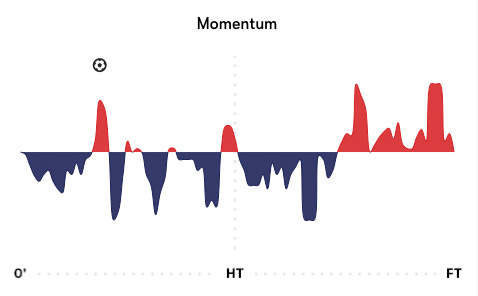
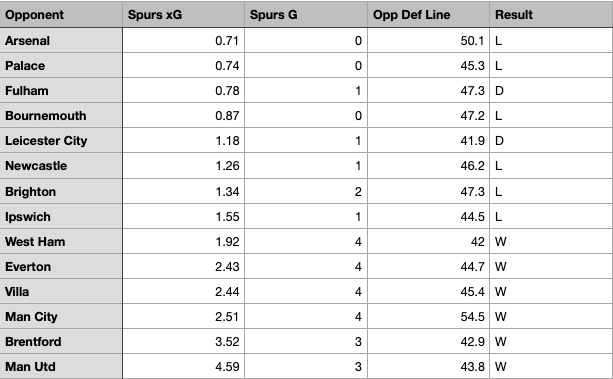
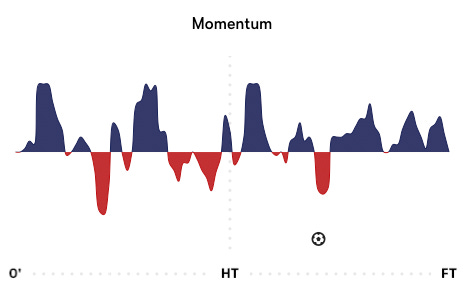
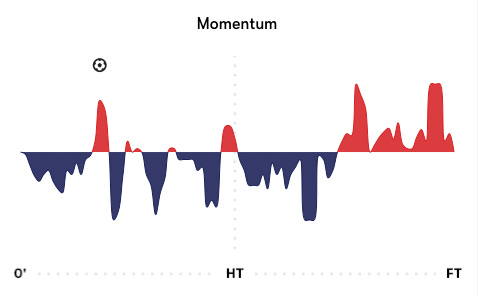
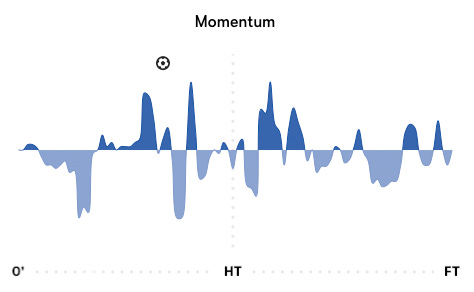
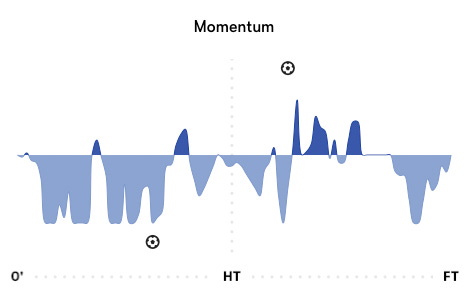
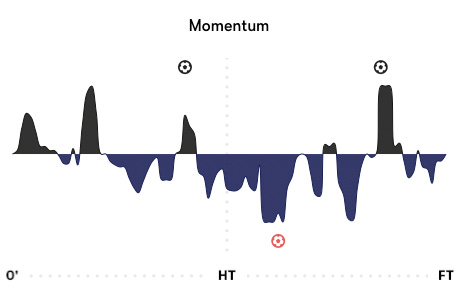

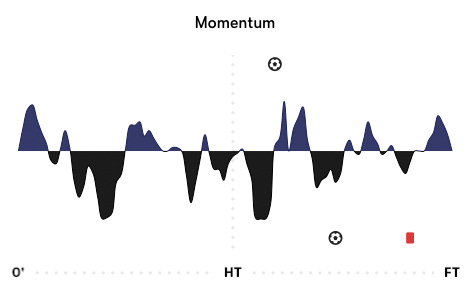
Wouldn’t you say that poor decision making is a sign of an immature, young team without a lot of PL experience? This means in 1-2 years we should be excellent
So spurs are wasteful in that they do not create enough high xg chances even when they dominate play? Is that the main takeaway? Ange did say we need attacking enforcements in January so maybe he's aware of this issue.